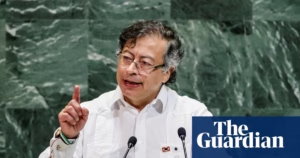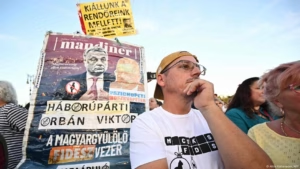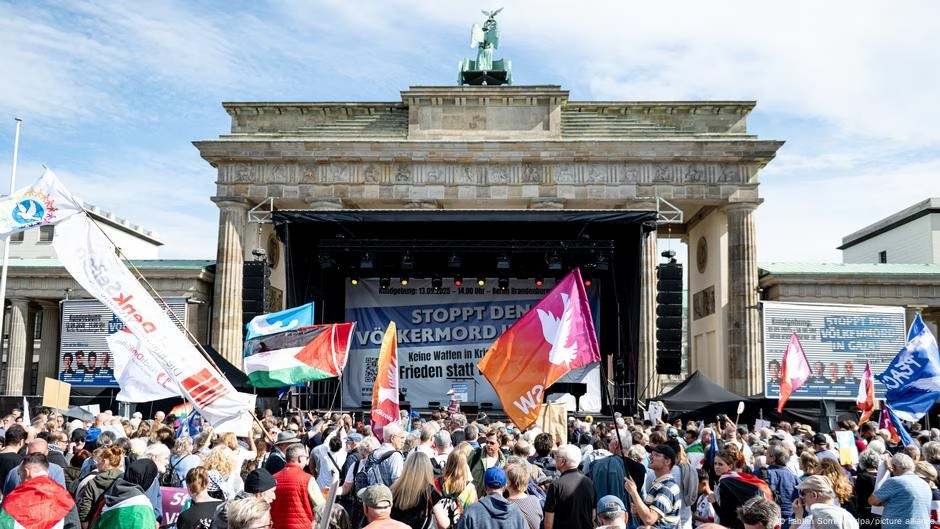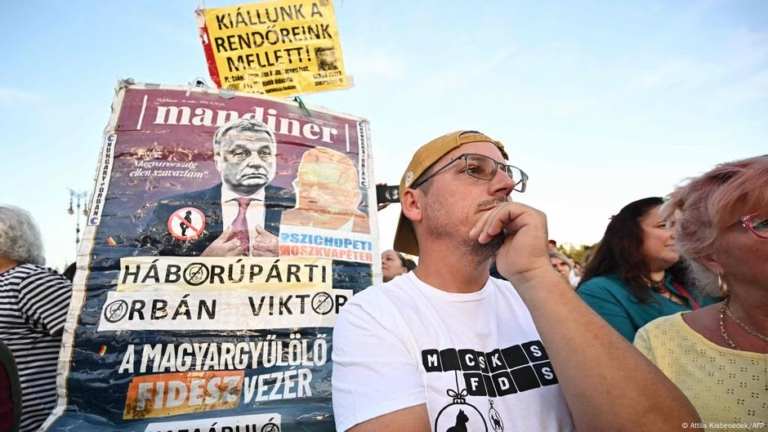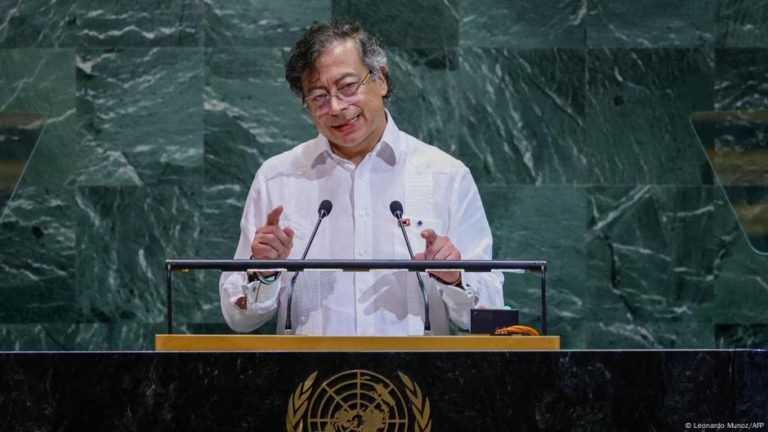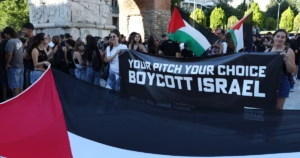Major anti-war protests are being planned in Germany for the upcoming weeks. On September 13, over 10,000 individuals gathered in front of Berlin’s Brandenburg Gate, chanting “Stop the genocide in Gaza.”
Russia’s unprovoked war on Ukraine also drew participants to the demonstration. Among the notable speakers was politician Sahra Wagenknecht, a leading organizer of the protest and founder of the economically left-wing, politically conservative Sahra Wagenknecht Alliance.
Prominent artists like actor Dieter Hallervorden, musician Peter Maffay, and rappers Massiv and Bausa took the stage. The diverse crowd came together to urge the federal government to provide active support for peace negotiations in the Middle East and Ukraine, as well as to call for a halt to arms deliveries to conflict zones.
Wagenknecht emphasized the need to oppose the inhumane wars occurring worldwide, while also condemning the violence inflicted by Hamas and the taking of hostages.
Wagenknecht argued that none of this justifies the bombing, murder, starvation, and displacement of millions of people, half of whom are children, in the Gaza Strip.
This could mark the beginning of a new peace movement capable of mobilizing large crowds. There are historical parallels in Germany – in the 1980s, when proponents of nuclear disarmament held large protests in Bonn, and in 2003, when crowds took to the streets of Berlin to protest the Iraq War.
Some experts believe the potential for a powerful movement is there, but it currently lacks a shared goal.
Wagenknecht is a prominent and controversial figure in this movement. In 2023, one year after the conflict in Ukraine began, she organized a rally with Alice Schwarzer, a women’s rights activist. Critics accused them of being too sympathetic to Russia or even to President Vladimir Putin.
Wagenknecht’s latest rally is again attracting criticism. The Left Party hopes to bring together a wider range of participants and form alliances with non-governmental and Palestinian organizations. They aim to engage critical Israelis, Jewish Israelis, and others.
The debate over compulsory military service could also potentially mobilize young people. A petition against the idea had already attracted over 70,000 signatures as of September 26.
Germany is, and has long been, a resolutely pacifist country, noted Jannis Grimm, a peace and conflict researcher at the Free University of Berlin. However, he fears the tide might be shifting.
The Left Party and the Sahra Wagenknecht Alliance, an offshoot of the Left Party, are among the leading groups in the opposition. These divisions somewhat limit the effectiveness of the movement.
Nonetheless, resistance is growing, and could come to a head on October 3, a symbolic day commemorating the reunification of Germany, with large demonstrations planned for Berlin and Stuttgart. Several initiatives, organizations, and parties have called for the event, with the slogan: “Never again ready for war! Let’s stand up for peace!”
Source: https://www.dw.com/en/anti-war-germany-s-new-peace-movement-gains-momentum/a-74154812?maca=en-rss-en-all-1573-rdf
